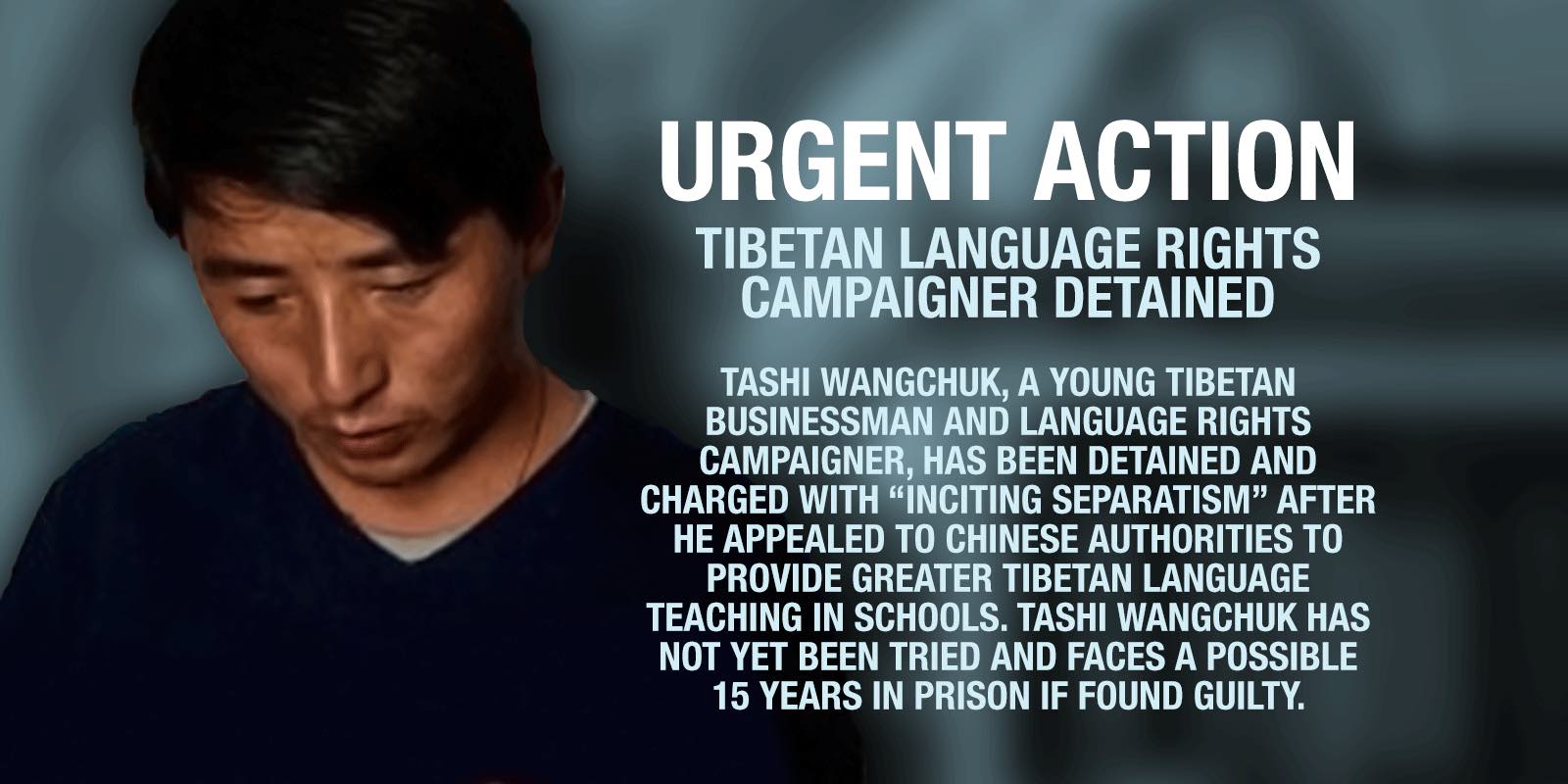 The Tibetan Centre for Human Rights and Democracy (TCHRD) condemns the unlawful and arbitrary detention of Mr Tashi Wangchuk for his peaceful advocacy of Tibetan language education and calls for his immediate release.
The Tibetan Centre for Human Rights and Democracy (TCHRD) condemns the unlawful and arbitrary detention of Mr Tashi Wangchuk for his peaceful advocacy of Tibetan language education and calls for his immediate release.
Mr Wangchuk has been in pre-trial detention since 27 January in Kyegudo (Ch: Yushu) Tibetan Autonomous Prefecture, Qinghai Province, in the Tibetan province of Kham. His arbitrary detention took place more than a month after an interview of him appeared in the New York Times on his efforts to file a lawsuit against the local Chinese authorities for their failure to protect and promote Tibetan culture and language. On 24 March, he was formally charged of inciting separatism despite the fact that he has no record of advocating Tibetan independence or separatism.
During his 11 months’ detention, Mr Wangchuk was investigated more than once by the Yushu Public Security Bureau (PSB) officers on the politicized charge of inciting separatism. The focus of the investigation was the interviews he gave to the overseas media organization. During this period, the procuratorate officers that decide whether to send a case for trial asked the PSB officers for additional investigation, the results of which were then submitted in late August. In September, the procuratorate sent Mr Wangchuk’s case to the Yushu Intermediate People’s Court.
This month, the procuratorate asked the court to send the case back for further investigation, reported the New York Times. Following this development, Mr Wangchuk will be subjected to further investigation that the procuratorate claimed would be completed by 4 January next year. TCHRD fears that the investigating officers would use unlawful means to gather false evidence to convict Mr Wangchuk. The long drawn investigation process demonstrates that the PSB officers have no evidence to prove the charge against Mr Wangchuk.
“Any other Tibetan would have long been convicted, if not subjected to prolonged secret detention or disappearance. A large majority of Tibetans continue to be charged of inciting separatism and other crimes of endangering state security without any legal representation or due legal process,” said Pema Choedon, researcher at TCHRD. “In some warped sense, Mr Wangchuk is the fortunate among the unfortunates because his case is closely watched and prominently reported in the international community and this has definitely made it harder for Chinese authorities to imprison him easily.”
TCHRD urges the Chinese authorities to drop this pretense of legal proceedings, withdraw all charges against Mr Wangchuk, release him with immediate effect, and allow him to continue with his peaceful advocacy of Tibetan language education. Mr Wangchuk only called for the implementation of the rights and freedoms associated with the equal protection and promotion of Tibetan language and culture, as stipulated in the Chinese Constitution (Articles 4, 121, 134) as well as the Law on Regional National Autonomy (Articles 10, 21, 36, 47, 49). All his advocacy efforts from petitioning the local authorities in Yushu to filing a lawsuit in Beijing broke no law. The continuing detention of Mr Wangchuk makes a farce of rule of law in the People’s Republic of China.
